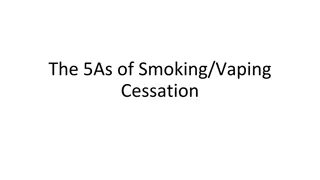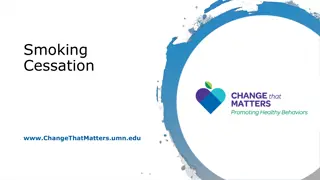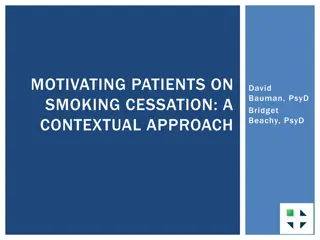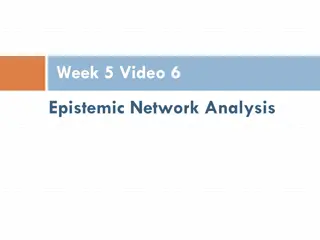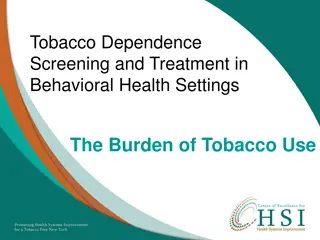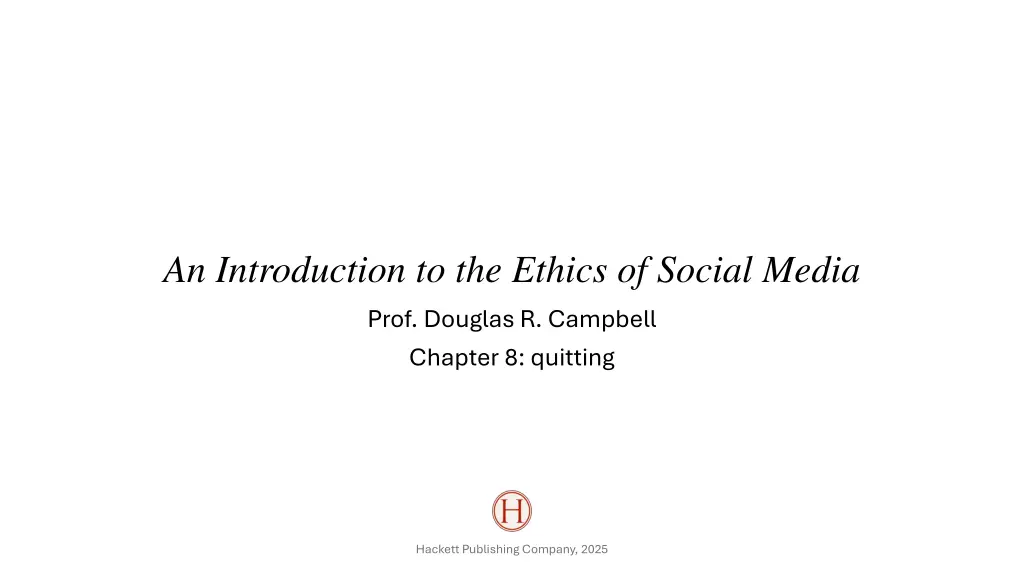
Ethical Considerations for Quitting Social Media
Explore the ethical implications of quitting social media for personal well-being, privilege, consequentialism, and collective obligations. Delve into the debate around individual vs. government responsibilities in addressing the negative aspects of social media platforms. Consider the role of utilitarianism in assessing the outcomes of quitting social media for societal good.
Download Presentation

Please find below an Image/Link to download the presentation.
The content on the website is provided AS IS for your information and personal use only. It may not be sold, licensed, or shared on other websites without obtaining consent from the author. If you encounter any issues during the download, it is possible that the publisher has removed the file from their server.
You are allowed to download the files provided on this website for personal or commercial use, subject to the condition that they are used lawfully. All files are the property of their respective owners.
The content on the website is provided AS IS for your information and personal use only. It may not be sold, licensed, or shared on other websites without obtaining consent from the author.
E N D
Presentation Transcript
An Introduction to the Ethics of Social Media Prof. Douglas R. Campbell Chapter 8: quitting Hackett Publishing Company, 2025
Quitting for our own well-being (1) One reason to quit social media is that it would improve our well- being. For many philosophers, such as Aristotle and Epictetus, ethics is about how to live a good, fulfilling life. We have ample psych research showing that social-media use is bad for us. Some groups don t suffer as much as others from social-media use, but for those groups who experience a net loss of well-being from social media, they should quit.
Privilege (1) Some people have argued that the debate about whether to quit is steeped in privilege. After all, some groups would have a very hard time quitting. E.g., people with small businesses that thrive on social media. It does look like the privilege-based objection states something true, but the objection doesn t actually tell us whether those of us who could quit should. Plus, the more people who quit, the better for those who can t so easily quit, because the quitters create social conventions that make life without social media easier. So, the cost of quitting decreases for everyone.
Consequences (2) Another reason to quit: consequentialism. This is the view that actions are wrong or right depending on the outcomes they promote. A pertinent form of consequentialism: utilitarianism. Utilitarians evaluate an action by focusing on the overall consequences for everyone. We might have a duty to quit social media because we want to boycott the companies behind the apps. These companies do all sorts of bad things. A boycott could force them to change or drive them out of business. Sure, these companies do good things, too. But it is not implausible that they are net negatives for society, and we might be able to use a boycott to get rid of some bad things about them.
Individual and collective obligations (2) One objection to the argument that we should quit to promote good outcomes is that it isn t obvious that it is our job to mitigate some of the bad things about social media. These companies undermine democracy, spread misinformation, violate privacy, and more. These seem like problems that the government should handle. After all, one thing that almost everyone agrees on: it s up to the government to protect and enforce people s rights. These arguments say that the obligation to change social-media companies is a collective one, not an individual one: it falls on the government, not on individuals. One reply to this argument: some collective obligations become individual obligations if the government fails to act. E.g., I have to ensure my child is educated even if the government fails to do so.
ICI (2) Since the consequentialist/utilitarian argument is based on promoting the best outcome, we need to ensure that our actions actually promote the best outcome. Individual Causal Inefficacy (ICI) grants the point that if quitting would help, we should do it. But we aren t nearly so influential as to think that we would make a difference. If we were Taylor Swift, we should do it, because (plausibly) she could make a difference. But if I quit, it won t lead to any reforms of social-media sites, so I don t have the obligation. One objection to ICI: maybe we shouldn t associate with bad actors even if cutting ties with them wouldn t change anything.
Complicity in evil (3) Some people think that we need to avoid being complicit in evil, and we are complicit in evil when we associate with bad actors, whether they are oil companies or social-media companies. Many people feel this way when they deliberately avoid buying products from artists who have done evil things. Generally, their boycotts aren t dependent on the idea that they will actually stop the artists from doing more evil things.
Too demanding (3) One reason why people often object to that line of thinking is that it is too demanding. E.g., if I stop associating with companies that emit greenhouse gases, there isn t much I ll be able to eat or wear.
Solving the demandingness problem (3) One remedy to this problem: it isn t that we should avoid ever associating with a bad actor. Rather, we should ask how essential is the harm to the thing in question. E.g., you are at a grocery store, and you see a box of spinach. In order to know whether it is morally permissible for you to buy that spinach, you have to ask yourself two questions. The first is whether there is any evil or harm involved in it. The answer to this question seems to be yes, as it would be for virtually anything that you could buy. After all, consider the greenhouse gases emitted during transportation. The second question you must ask yourself is whether any of these harms are essential. The harms of climate change are likely not essential to the production of spinach. This does mean ignoring how many harms are actually caused, but if we have to attend to the actual harms, then we end up with the demandingness problem again.





